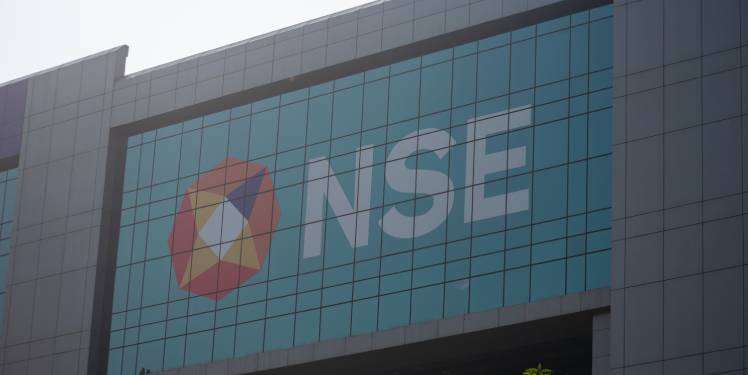- Last Updated: Jul 31,2024 |
- Religare Broking
India's stock market is an important part of the country's economy. The National Stock Exchange (NSE) and the Bombay Stock Exchange (BSE) are the two stock exchanges. They are both important but in different ways. Let’s take a quick look at how NSE and BSE are different and which one is better.
- Understanding NSE and BSE
- Difference between BSE and NSE
- Which Platform Should You Pick?
- FAQs
Topics Covered :
Understanding NSE and BSE?
What's NSE?
NSE, which stands for the National Stock Exchange is one of India's most important stock exchanges. When it was established in 1992, the NSE was a groundbreaking effort to make the Indian stock markets more open and efficient. This made it possible for more people to trade in stocks.
The way NSE used technology was a game-changer in a country as big as India. It started screen-based electronic trading, which made it easy for investors in even the most remote parts of India to join. This freed people from the old way of buying and selling shares in person and made real-time trading available to everyone.
The NIFTY is NSE's well-known index. It is made up of stocks of the top 50 Indian companies from different industries. It shows how the Indian markets are doing and is a term you hear a lot in the news.
Read Also: What is Demat Account?
What's BSE?
The Bombay Stock Exchange (BSE) is one of India and Asia's oldest and most prominent stock exchanges. Established in 1875, BSE has played a pivotal role in shaping India's financial landscape over the decades. It is headquartered in Mumbai, the financial capital of India, and stands as a testament to the country's rich economic history and development.
BSE serves as a platform for trading various financial instruments, primarily equities (stocks) and bonds. It provides a marketplace where buyers and sellers come together to conduct transactions, thus enabling companies to raise capital and investors to participate in the ownership of these companies. BSE's trading floor, a renowned landmark in Mumbai, used to witness traders engaging in open outcry trading – a system where traders physically gathered to buy and sell securities using verbal communication and hand signals.
However, BSE's significance extends beyond its historical roots. The exchange has continuously evolved to keep pace with global market trends and technological advancements. While it was known for its open outcry system, BSE also transitioned to electronic trading systems to facilitate faster, more transparent, and more efficient trading. This adaptation to modern technologies has allowed BSE to maintain its relevance in today's digital era.
Difference between BSE and NSE
The Bombay Stock Exchange (BSE) and the National Stock Exchange (NSE) are India's primary stock exchanges, both playing pivotal roles in shaping the country's financial landscape. While both serve as platforms for trading securities, they exhibit distinct characteristics that set them apart.
Establishment and History
The Bombay Stock Exchange, established in 1875, is one of the oldest stock exchanges in Asia. It boasts a rich history and legacy in India's financial evolution. On the other hand, the National Stock Exchange, established in 1992, is a relatively new entrant but has rapidly risen to prominence due to its technological innovations.
Trading Mechanism
One of the most significant differences between BSE and NSE lies in their trading mechanisms. BSE follows an open outcry trading system, where traders physically gather on the trading floor to buy and sell securities through verbal communication and hand signals. In contrast, NSE introduced an automated electronic trading system called National Exchange for Automated Trading (NEAT). This automated approach provides greater transparency, efficiency, and real-time trading, reducing the scope for errors.
Indices
Both exchanges have their benchmark indices that reflect the overall market performance. BSE's benchmark index is the Sensex, which comprises 30 actively traded stocks representing various sectors. NSE's benchmark index is the Nifty 50, consisting of 50 large-cap stocks across different sectors. These indices are widely tracked indicators of market trends and investor sentiment.
Market Share
In terms of market share, NSE has gained a significant edge over BSE. NSE's technology-driven trading systems and timely adaptation to global trends have attracted higher trading volumes and a larger number of listings.
Listing Requirements
BSE and NSE have specific listing requirements that companies must fulfill to be listed on the exchange. However, NSE is often perceived as having more stringent requirements, making it an attractive option for investors looking for companies with higher governance and financial performance standards.
Global Recognition
While both exchanges have a notable presence in the Indian financial ecosystem, NSE has gained more international recognition due to its technological advancements and its role in shaping India's modern capital markets.
Market Hours
Both exchanges have similar market hours, but there are slight variations. BSE's trading hours are from 9:15 AM to 3:30 PM, while NSE's trading hours are from 9:15 AM to 3:30 PM for equity trading and from 9:00 AM to 5:00 PM for currency trading.
Which Platform Should You Pick?
For an Indian investor who is just starting out, deciding between NSE and BSE may seem like a hard choice. But here's the good news: both are very trustworthy and are regulated by the Securities and Exchange Board of India (SEBI). So, what should you base your decision on? When delving into the realm of stock market investments, it's crucial to align your strategy with your objectives. If your focus is on investing in some of India's largest corporations, both the National Stock Exchange (NSE) and the Bombay Stock Exchange (BSE) offer excellent opportunities for such investments. However, if you're keen on widening your investment horizon to encompass a diverse range of companies, including smaller and mid-sized ones, the BSE could be your preferred choice due to its extensive listing of companies.
Simply put, whether you choose NSE or BSE, you will start your investment journey in India on a safe and reputed stock exchange.
Open an Online Demat Account and Start Investing in NSE & BSE Today
FAQs
Q1. NSE or BSE? Which is better?
Both NSE and BSE are well-known and safe stock exchanges. Your choice depends on your personal preferences. While NSE has a strong technological base and is the leader in dealing with derivatives , BSE's long list of companies gives investors a wider range of options to invest in. In the end, it's not a question of which is "better," but of which fits your financial needs.
Can I buy on BSE and sell on NSE?
You sure can. When you buy shares on the BSE and sell them on the NSE, you take advantage of the difference between BSE and NSE prices. But you should always make sure that your broker lets you trade on both platforms and that you know the rules and possible risks.
When does BSE and NSE trading take place?
Both the BSE and the NSE are open at the same time. From 9:00 to 9:15, there will be a pre-opening session. Normal operating hours are from 9:15 a.m. to 3:30 p.m., Monday to Friday (except on national holidays).













